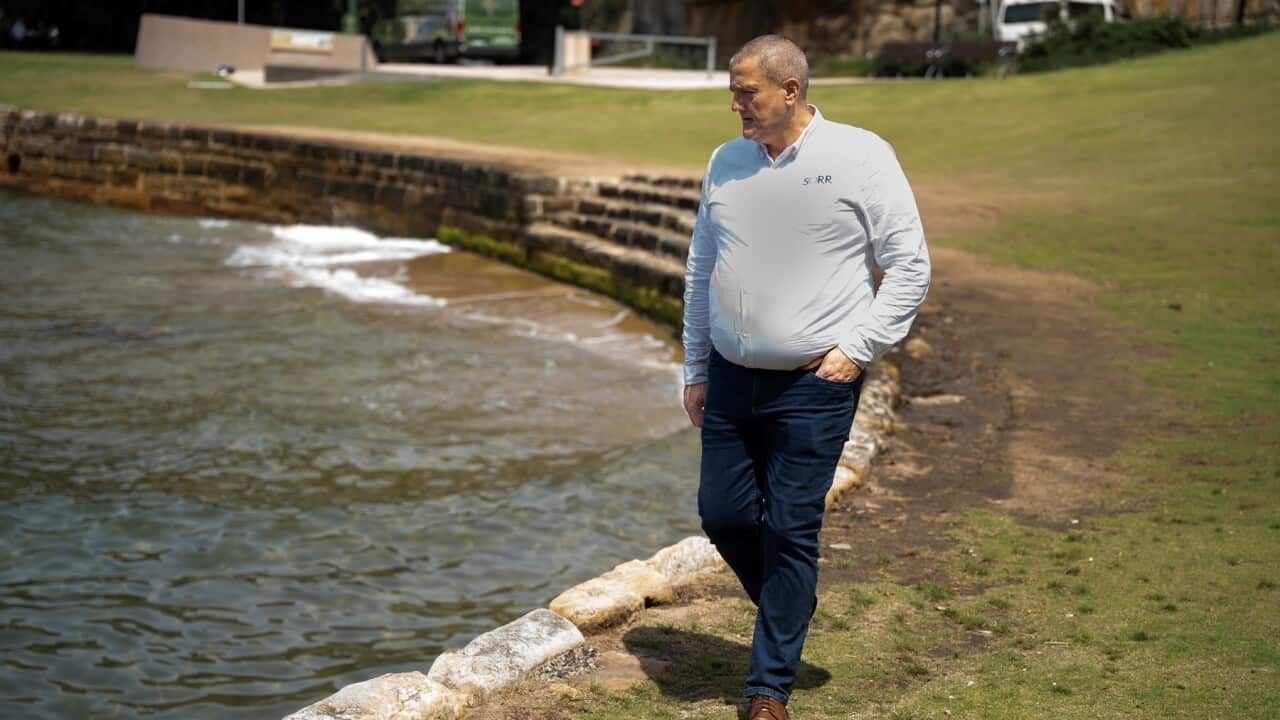TRANSCRIPT
"You're told you have less than 12 months to live, you plan for not being here."
Rob Manning is an Australian entrepreneur living on the New South Wales central coast.
A close brush with death gave him a new lease on life.
“So in March of 2021, my wife asked me to see a GP. I hadn't seen one for a long time and I was surprised when the GP said to me that I was a sick person. I didn't feel sick. I ended up getting diagnosed with an end stage liver disease.”
Mr Manning was fortunate to be one of the few hundred Australians who receive a lifesaving liver transplant each year.
He was on a walk near his home when he had an epiphany.
“Where I live there's a small creek which had oil flowing on the top of it. And I knew then that I was given a second chance to actually do something for the world"
His Company SORR, which stands for sustainable oil recovery and remediation, has developed a hydrophobic sponge which can separate oil from water.
"It is capable of picking up seven to 10 times its own weight in oil without picking up water because it's what we call hydrophobic. So it repels water, which means that the oil that is spilled in water can be recovered, recycled and reused."
SORR has received backing from Australia's national science agency, the CSIRO, which runs a program tackling environmental challenges in India.
Tamara Ogilvie is its director
“International relationships and partnerships are a critical part in solving those challenges because of course, climate environment challenges are global and we are through the RISE program looking to support companies are making a difference in seemingly small ways, but that have potentially really innovative technologies that can create impact at scale beyond our Australia's borders.”
Mr Manning has taken the sponge to the Goa Region of India and has worked with local businesses and the CSIRO to test its ability to remove pollutants from waterways.
He collaborates with Naren Subramaniam, an engineer who is also passionate about solving India’s pollution problems.
"I'm of an Indian background but am an Australian citizen now. So, there was always a thought around how I can give back to the community where I grew up,"
Mr Subramaniam's company, Circular Seed, is developing new ways to recycle materials that would otherwise pollute water ways or end up in landfill.
One way is to turn plastic waste into bricks used for building roads.
"Developing countries are in more need of such a solution because of the vastness of the population and the amount or the scale of the plastic problem that's dispersed across the country,"
Scientists say ocean plastic pollution will triple over the next 40 years, with plastic waste expected to exceed one billion tonnes.
Ravi Naidu is the CEO of the Cooperative Research Centre for Contamination Assessment and Remediation of the Environment.
He says cleaning dirty water is complex and urgent.
"Any pollutant which is present in water, it could adversely impact both the environmental ecosystem and human health.”
Mr Manning says his sponge may have broad applications for dealing with water pollution and hopes to scale production in coming years.
"The reality is humans live off the sea. So, if the fish are consuming plastics or lithium or cyanide, that gets into the food chain and then it's in us. And that's one of our biggest drivers for us, to make the invisible visible, to take the things that we can't see out of the water."













